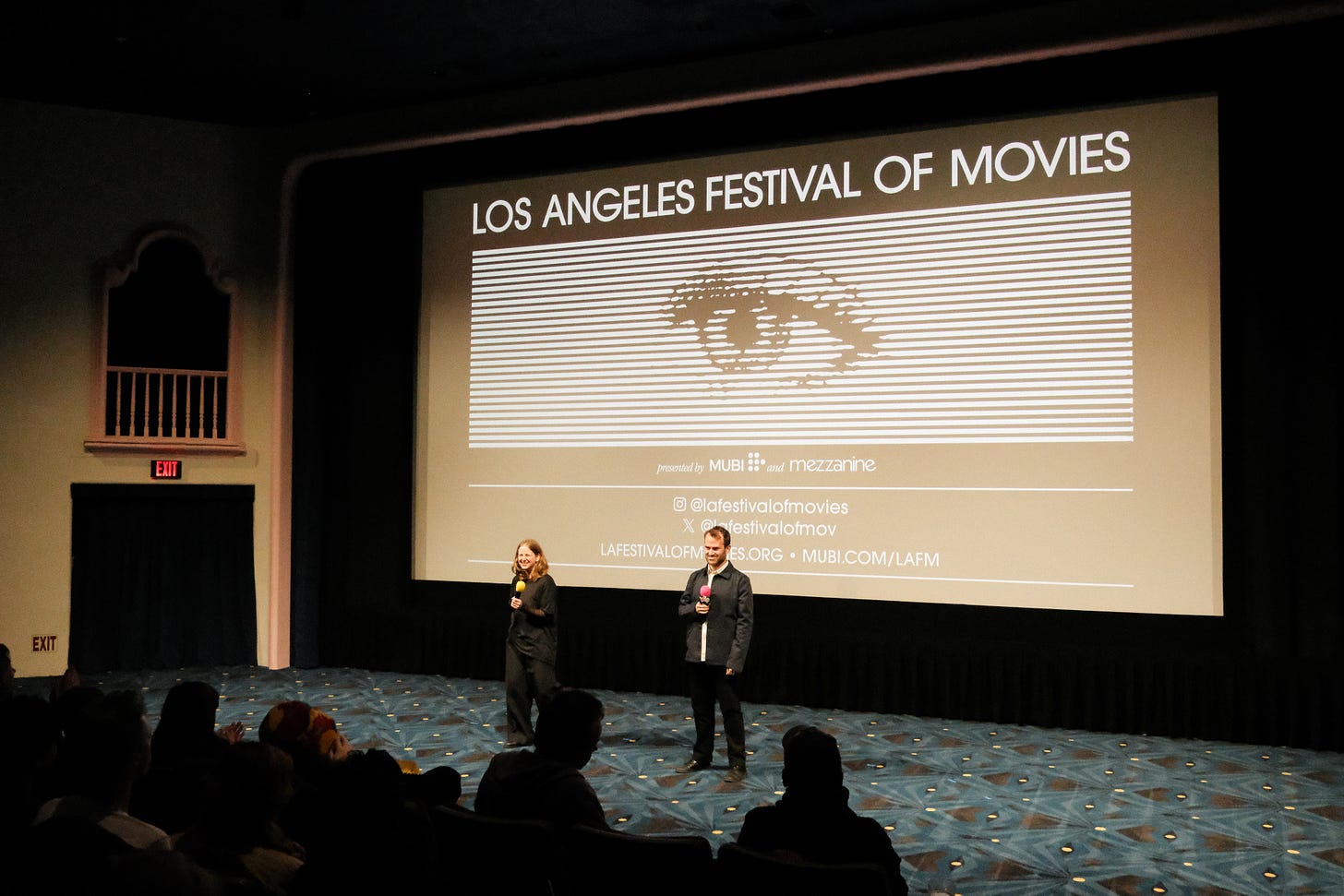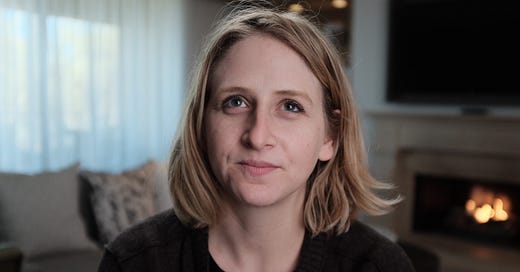With two critically acclaimed films released in 2024 - Jane Schoenbrun's I SAW THE TV GLOW and India Donaldson’s GOOD ONE - and her latest film BY DESIGN premiering at Sundance 2025, producer Sarah Winshall is having what many would call “a moment.” But as the winner of the Film Independent Spirit Awards Producers Award, Sarah reveals that success in independent film is anything but overnight.
From questioning traditional casting "rules" to experimenting with different producing roles, Sarah sat down with Dear Producer to share her experience navigating an industry in flux while staying true to her mission of championing "personal films with unique world views." Through her work with rising directors and the launch of a new film festival, she's redefining what sustainability can look like for independent producers, even as she admits she's still figuring it out herself.

2024 was a big year for you with both I SAW THE TV GLOW and GOOD ONE premiering at the Sundance Film Festival and now being recognized in award conversations. And if that wasn’t enough, you have a new film, BY DESIGN, that just premiered at Sundance 2025. How do you feel about this windfall of success? Is it a happy coincidence in terms of timing or was there strategy in having a full plate?
It definitely feels like a coincidence. I SAW THE TV GLOW and GOOD ONE were shot a year apart and I had very different roles on each film. On TV GLOW, I was a full-on producer, whereas on GOOD ONE I was an executive producer. All of my films are really different from each other, which makes it nice to have such a broad range of work to showcase. On top of that, I launched the Los Angeles Festival of Movies last year. Everything I've been thinking about for a long time is finally getting some attention in a way that I haven't experienced at this level until now.
It's that myth of overnight success, right? People know your name now because of all the publicity in a short time frame, but you've been doing the work for years without the limelight.
Exactly. I've been here doing this work the whole time. 2024 was more difficult in terms of work-life balance. My work has felt more all-encompassing. That said, it does equal more attention. With the pandemic and then the strike, everything felt quiet for a couple of years, so it has been satisfying to have so much to share and celebrate.
How did you determine which role to play on each film? How do you differentiate being what some call a “capital P producer” versus an executive producer?
Choosing the executive producer title was an experiment. For sustainability purposes, I am trying to grow in terms of the scale of the budgets I'm working on, but I also want to be involved in discovering new talent, which often happens in the low budget space. GOOD ONE came to me at a time when I was over-committed and underpaid, much as I am now. However, I love the team that made it and I wanted to be involved no matter what, I just couldn't be a boots-on-the-ground producer. We talked a lot about what I could do and ultimately chose executive producer because it was the title that spoke to the resources I was bringing to the table. Typically EPs bring financial resources, but I was filling out gaps in other ways. Also, like an executive producer, I was sitting in an office doing "executive" work while the rest of the team was physically making the film.
I hadn't done anything like that at the time so I was nervous to take up the space without earning my keep. Now I can look at the film and see what I brought to the table and it feels really good. It was a valuable collaboration and I'm honored to be part of a team that executed such a beautiful film. I'm hesitant to take credit for this movie, but there were things that I brought to the table that made a difference, particularly some key conversations around casting, fundraising, and other creative and organizational conversations. I do think that I earned my keep and I feel really happy about that.
As we both know, there are many people who have taken a full producer credit doing much less. I think you’re setting a really good example for establishing what is involved in being a producer and how you earn the credit and also giving more weight to the executive producer role outside of just financing. Would you do it again?
I think it might become more common in my career. Looking at what makes sense for somebody my age and with my experience level, the opportunities to grow are very limited as the boots-on-ground producer. The opportunities to get involved in films in a more advisory capacity where you're helping the team figure out what gaps they need to fill or sharing what works based on experience - that's been the most satisfying stuff lately.




